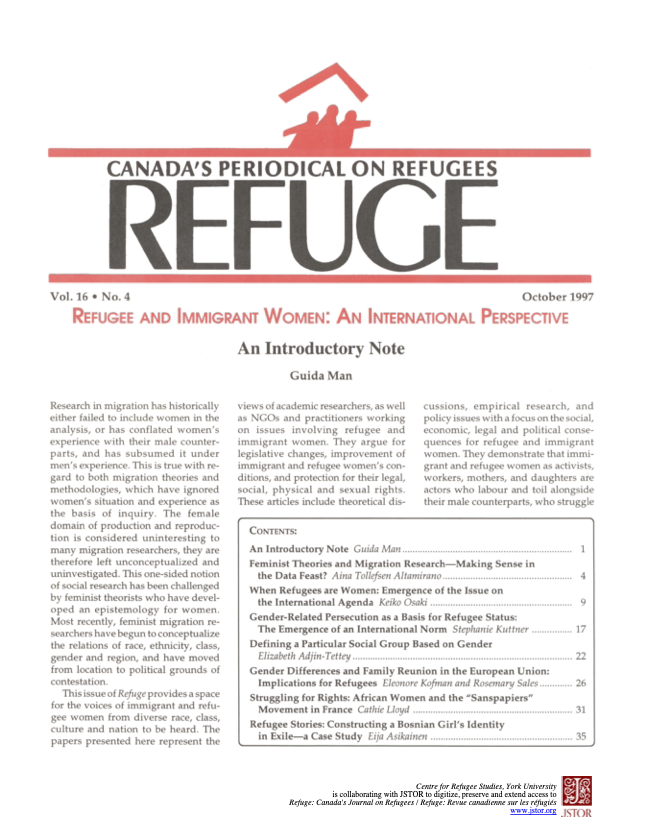Gender Differences and Family Reunion in the European Union: Implications for Refugees
DOI:
https://doi.org/10.25071/1920-7336.21932Keywords:
immigration, gender, family, refugees, European Union, immigration policy, migration, human rights, women, powerAbstract
The feminization of immigration flows into Europe, both through family reunion and the independent migration of women, has been one of the most significant social changes of the past two decades. This development has, however, remained largely unexplored. This paper examines the consequences of changes in access to family reunion, and its gendered implications for women entering as family migrants and as applicants to sponsor family members. It calls for a positive evaluation of immigration policy aimed at securing rights as weIl as controlling immigration flows.Metrics
Downloads
Published
How to Cite
Issue
Section
License
Copyright (c) 1997 Eleonore Kofman, Rosemary Sales

This work is licensed under a Creative Commons Attribution-NonCommercial 4.0 International License.
Refuge authors retain the copyright over their work, and license it to the general public under the Creative Commons Attribution-Non Commercial License International (CC BY-NC 4.0). This license allows for non-commercial use, reproduction and adaption of the material in any medium or format, with proper attribution. For general information on Creative Commons licences, visit the Creative Commons site. For the CC BY-NC 4.0 license, review the human readable summary.







